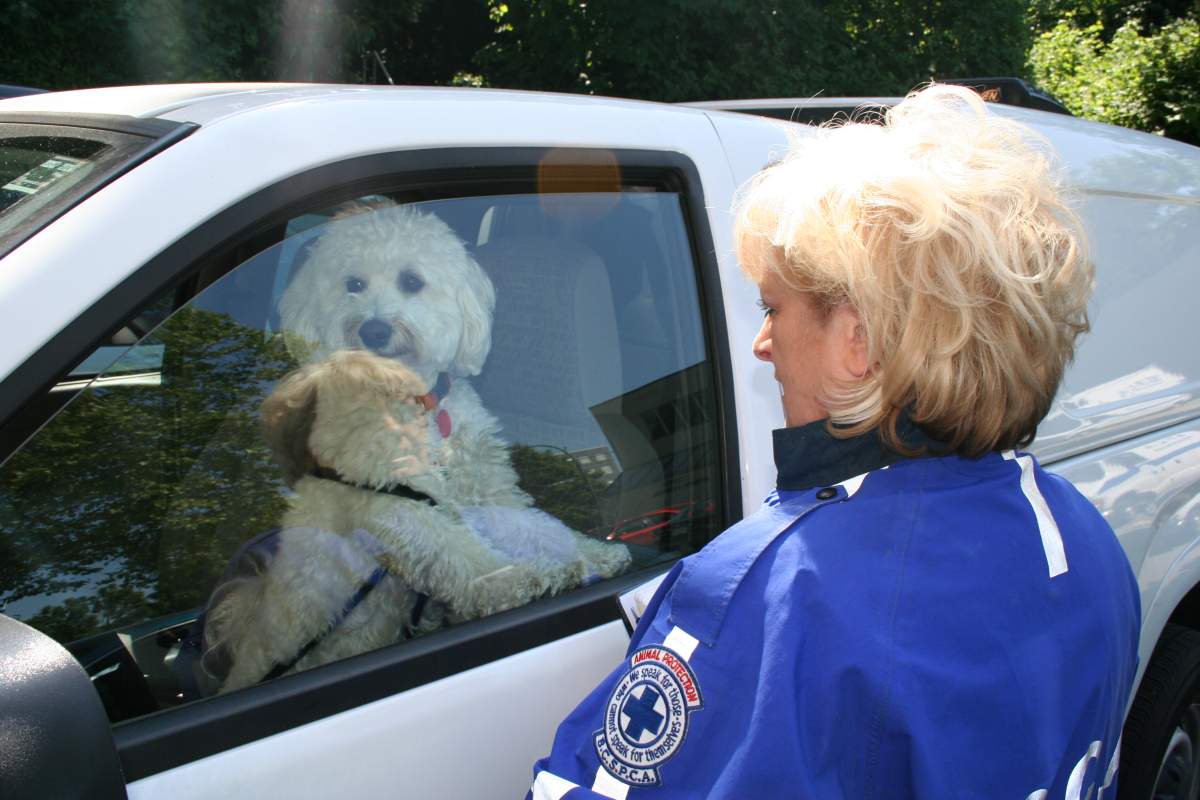Hot, summer-like weather is back, and with it comes the annual concern about people leaving their pets locked in hot cars.

The B.C. SPCA says it got about 1,000 calls about pets left in hot vehicles last summer alone, an act that can kill or seriously hurt an animal in minutes.
But while for many people the instinct might be to do whatever it takes to get Fido some fresh air, Lorie Chortyk, general manager of community relations at the B.C. SPCA , says it’s a move that’s best avoided.
“We really do appreciate how compassionate people are and their efforts to want to help animals in distress, but there are proper ways to deal with it,” she said on CKNW’s The Lynda Steele Show.
“We don’t want these great people who are trying to help to get in trouble themselves by breaking the law.”
WATCH: Dog left in hot car in Squamish parking lot returned to owners

While smashing the window of someone else’s car to free a dog is illegal, calling for help isn’t.
Instead of breaking into the vehicle, Chortyk said Good Samaritans should instead call the SPCA’s animal cruelty hotline.

Get breaking National news
“Our operators there will ask the person questions to determine whether an animal is in immediate critical distress, if they’re in mild distress or if they’re just inside a car and people are concerned.”
The operator will then contact the nearest official who can help, be it an SPCA constable, or animal control or police officer.
WATCH: Man breaks BMW window on hot day to free dog

Chortyk added that if the pet is just in the vehicle but not in distress, the SPCA recommends taking down the car’s licence plate number and then asking the managers in nearby businesses if they can try to locate the owner.
She said concerned members of the public can also pack a small kit to help keep animals cool while police or other officials are on the way.
A bottle of water, a small cloth that can be made damp and put on the animal or a battery-powered fan can all help, she said.
Chortyk also had words of warning for pet owners who might consider bringing their furry friends with them, and then end up leaving them in the car for what might seem like just a quick errand.
She said animals don’t have sweat glands like humans do, and as such are at a much higher risk of overheating than we are — even if the windows are left partially open in a vehicle.
“It can take as little as 10 minutes for an animal to suffer brain damage or to die in a hot car because the temperatures outside the car are quite different from temperatures inside the car,” she said.
If you see an animal in distress, you can reach the B.C. SPCA animal cruelty hotline at 1-855-622-7722.
How to recognize an animal in distress from heat:
- Exaggerated panting (or the sudden stopping of panting)
- Rapid or erratic pulse
- Salivation
- Anxious or staring expression
- Weakness and muscle tremors
- Lack of coordination, convulsions
- Vomiting
- Collapse












Comments
Want to discuss? Please read our Commenting Policy first.